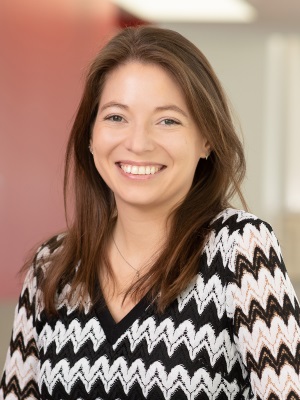Social Work researcher works to revamp TANF and decrease poverty for Michiganders
 Assistant Professor Kristina Nikolova, PhD is the recipient of a Family Self-Sufficiency and Stability Research Scholars Network (FSSRN) grant to study how adjustments to Temporary Assistance for Needy Families (TANF) requirements could increase families economic self-sufficiency and decrease poverty for Michiganders.
Assistant Professor Kristina Nikolova, PhD is the recipient of a Family Self-Sufficiency and Stability Research Scholars Network (FSSRN) grant to study how adjustments to Temporary Assistance for Needy Families (TANF) requirements could increase families economic self-sufficiency and decrease poverty for Michiganders.
Although nearly 1.5 million Michiganders receive TANF benefits, which provide a combination of cash and non-cash support such as childcare and job training, residents are still in need. Michigan has the highest rate of welfare application rejection in the nation and with research experience in policy, practices and programs effecting children and families, Nikolova is primed to determine why and how we can help.
Supported by the U.S. Department of Health and Human Services Office of Planning Research and Evaluation, an Office of the Administration for Children and Families, the FSSRN supports independent researchers who are working to enhance and improve family self-sufficiency research at the state and local levels through partnerships with local and state service agencies. Nikolova will be partnering with the Michigan Department of Health and Human Services over the next five years to conduct this study, which will utilize a mix of policy and procedural analysis, as well as interviews with program administrators and case workers to examine the exemption process for TANF work requirements and time limits in Michigan, and the unmet need for cash assistance in the state. Nikolova will also evaluate TANF data as part of this study comparing employment outcomes with the ways in which Michigan families use multiple benefit sources.
Given the disconnect between current benchmarks of TANF success and the reality of economic self-sufficiency, this grant aims to move beyond work participation as a measure of TANF success and instead shift the focus on outcomes related to reducing the negative impacts of families' barriers to self-sufficiency. Nikolova aims to determine not only why Michigan has such a high rejection rate of welfare applications, but how the process can be improved to better address the barriers faced by families. In the second phase of the grant, Nikolova will develop a statewide database and procedures to allow for ongoing evaluation of self-sufficiency outcomes. As an FSSRN researcher, Nikolova will also participate in a process at the heart of social work, multidisciplinary collaboration. Nikolova will partner with the four other recipients of 2020 FSSRN grant co-hort in a multidisciplinary learning community to share knowledge and results of their studies.
Decreasing poverty in Detroit and Michigan is an important part of fulfilling our social justice mission. I hope this project will help to identify several ways that state resources can be used to help families achieve economic self-sufficiency. - Kristina Nikolova